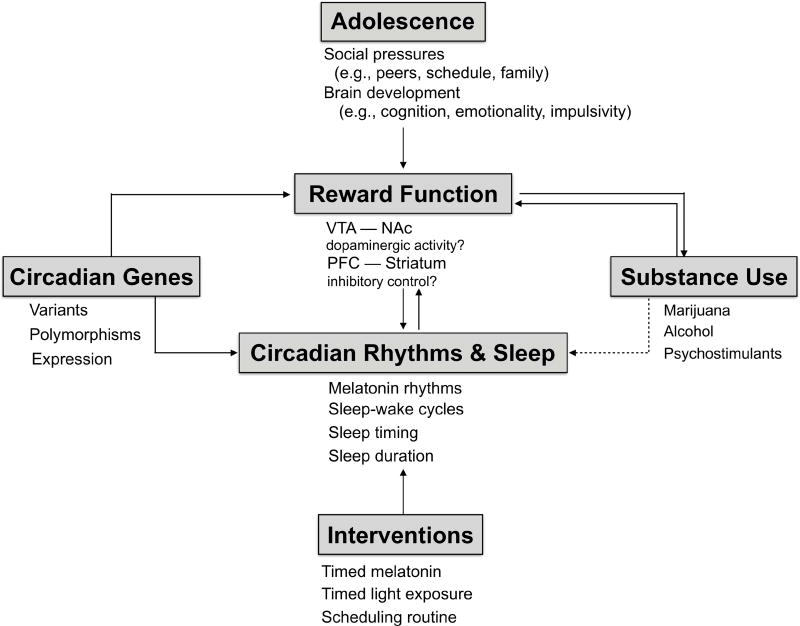Figure 2.
Working model of the interplay between circadian rhythms, sleep, ‘reward’, and vulnerability to substance use during adolescence. Developmental changes in neural circuitry controlling reward function occurs during adolescence and seems to be altered by sleep deprivation and circadian misalignment, potentially leading to risk-taking, impulsivity, and poor decision making. These changes likely contribute to vulnerability to substance use particularly in adolescents. Rodent studies have demonstrated associations between certain circadian variants, striatal dopamine, and brain response to reward stimuli. Interventions to phase shift, resynchronize, and/or improve sleep timing may be effective for treating mood and substance issues often experienced during adolescence.

